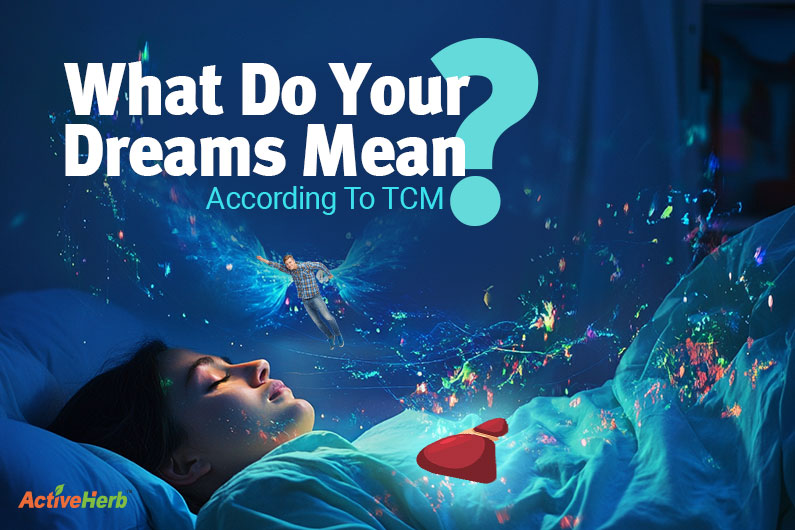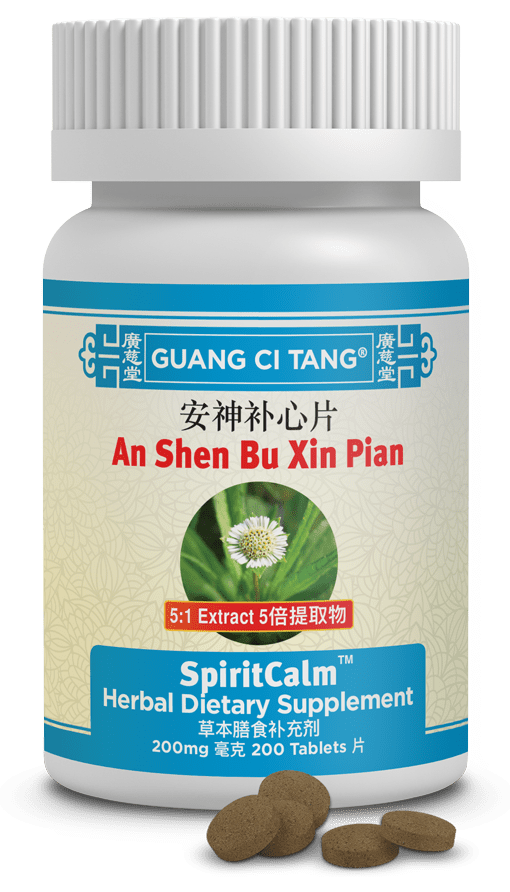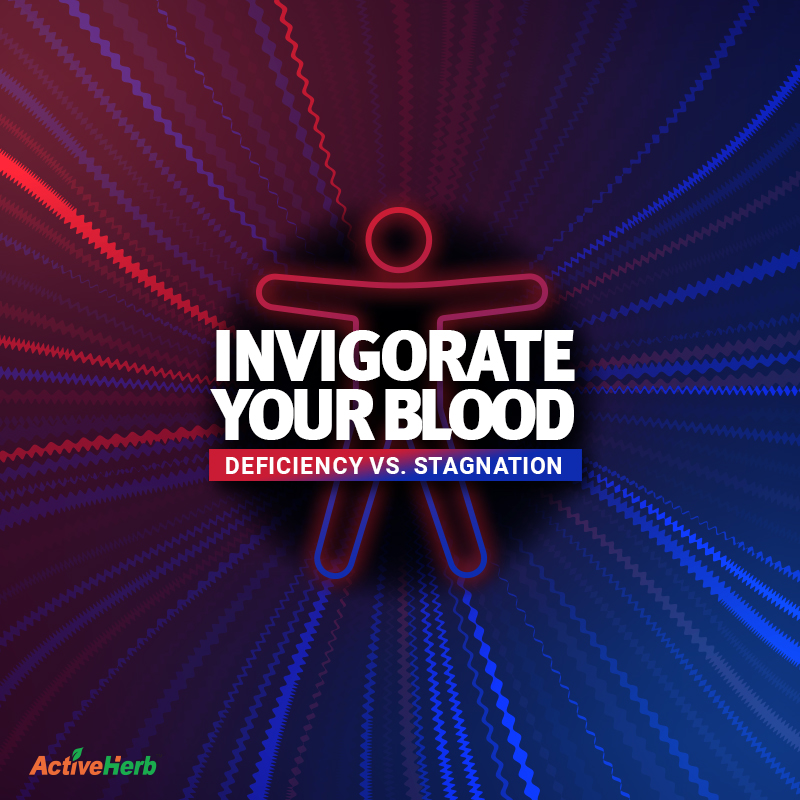What Do Your Dreams Mean According To Traditional Chinese Medicine?

Have you ever experienced one or more of these recurring dreams?
You’re running away from something or someone, often feeling intense fear or anxiety, whether it’s a threatening person, a vicious animal, or even something abstract like a shadow.
Or maybe you’ve had the sensation of freefalling. But not in a fun way like a roller coaster ride or skydive. Instead, you’re hurtling towards certain death, having inexplicably plunged off a cliff, building, or the sky. Mercifully, the dream ends just before your brains and internal organs hit the ground, yet you are startled awake and spooked out.
What about losing teeth or showing up for a final exam unprepared and naked?
Are these dreams random, or is there a solid explanation?
Here’s how TCM interprets dreams…
Occidental vs Oriental Dream Interpretation
Traditional Chinese Medicine (TCM) dream interpretation is an extension of Daoism, China’s unofficial religious, spiritual and philosophical systems. The Dao, which predates TCM by a few hundred years (roughly 2500 years for the former and 2200 for the latter), is the effortless, natural, harmonious way in which all things in the universe move and change according to their true nature.
Is having a dream that you’re freefalling while feeling like your teeth are falling out a random occurrence? Daoist philosophy, arguably, has more in common with Freudian psychoanalysis than TCM philosophy.
Dr. Igor Micunovic, a board member of the World Federation of Chinese Medicine Societies (WFCMS) and a member of the World Federation of Acupuncture-Moxibustion Societies (WFAS), writes, “The dreams of the common people compared to people united with Dao are baseless from the original Chinese point of view. Ordinary people’s minds are greedy, involved in outer affairs, full of desire and passions.”
Paging Dr. Freud…
“Desire and passion in dreams.” Where have we heard that before? Fast forward roughly 2,400 years after Daoist philosophy was codified, and who emerges in the dream interpretation scene? Why, if it isn’t Dr. Freud! In his landmark book The Interpretation of Dreams (1899), Sigmund Freud introduced his theory that dreams are the “royal road to the unconscious,” providing a pathway to understanding hidden aspects of the psyche. Freud viewed dreams as expressions of unconscious desires, repressed memories, and unresolved conflicts.
On the other hand, TCM philosophy interprets dreams in a novel way. Dreams are not just random occurrences, and they are not necessarily buried desires or memories. Instead, your dreams are reflections of your body’s internal state, particularly the health of critical organs like the Heart, Liver, Spleen, and Kidneys.
Interpreting Your Dreams With TCM Organs
Heart Organ System: The Seat of the Shen (Spirit)
In TCM, Heart governs blood circulation and controls consciousness, mental clarity, and emotional stability, and is considered the seat of the Shen (spirit), which encompasses consciousness and mind. A balanced Heart leads to peaceful sleep with few, if any, vivid dreams. From a Daoist perspective, having no dreams or being able to control your actions in a dream state indicates your Shen is in tip-top spirits (pun intended). However, when the Heart is imbalanced—often due to emotional stress, excessive heat, or blood deficiency—this can cause restless sleep and vivid, disturbing dreams, such as dreaming of fire or flames, which could indicate the TCM pattern of Heart Fire.
If your dream involves chaotic situations or emotional turmoil, it may indicate a disturbed Shen.
—-> Is your Shen disturbed? Calm it with SpiritCalm.
Liver: Governing the Flow of Qi and the Hun (Ethereal Soul)
The Liver’s physiological role from a TCM perspective is ensuring the smooth flow of Qi (energy) throughout the body, storing blood, and similar to Western physiology, playing a key role in detoxification. But as the governor of emotions, the Liver channel is connected to the Hun, the ethereal soul responsible for planning, creativity, and vision. When Liver Qi is stagnant, overly active, or deficient, it can lead to dreams reflecting unresolved emotions, anger, or stress.
That dream you’ve had flying or soaring might seem like a groovy psychedelic experience. However, from a TCM lens, it indicates that you may have Liver Yang rising. More obvious dream scenarios that indicate Liver imbalance are when you feel frustrated or engaged in an argument or physical altercation. With these dreams, you’re more likely to have Liver Qi stagnation than excess heat (Yang Qi) rising.
Or how about the nightmare of being buried alive? Yikes. Dreams involving tense situations or feeling trapped may indicate Liver Blood deficiency.
—-> To resolve Liver Qi stagnation, revive your liver with LiverVive.
The Spleen: Governing Digestion and the Yi (Intellect)
Unlike the Western spleen, which is primarily involved with blood filtration and immune function, the TCM Spleen converts food into energy and distributes nutrients throughout the body. The Spleen’s spiritual/emotional role is governing the Yi, which is linked to thought, concentration, and memory.
It seems nearly impossible not to be an overthinker and excessive worrier these days. But your Spleen organ system will weaken if you don’t eat well and manage your stress. A deficiency of Spleen Qi may produce anxiety or obsessive-ridden dreams, such as being bogged down by tasks or repetitive activities. A sure-fire indication that you have Spleen Qi deficiency: dreaming that you’re starving or unable to find food.
Having a balanced Spleen organ system may not be a remedy endorsed by Freud. But in TCM it ensures clear, logical thinking and a calm mind, promoting restful sleep.
The Kidneys: The Root of Vitality and the Zhi (Willpower)
The Kidneys are the anti-aging organ of TCM. They store Jing (essence/vitality), control growth and development, and regulate reproduction. They are also associated with the bones and marrow and govern the Zhi. Think of Zhi as your seat of willpower, motivation, and courage. Because the Kidneys play a crucial role in overall vitality, their strength determines resilience against stress and fear. When the Kidneys are deficient (Kidney Qi deficiency), which is more likely with the aging process, it opens the door for bad dreams. Dreams of being chased symbolize Kidney Qi deficiency, whereas drowning may indicate a more general Kidney imbalance (both Yin and Yang are off). Meanwhile, if you dream that you want to punch someone but can’t even move your arms, it’s a metaphor for weakness or losing control. This dream scenario can indicate a decline in Kidney Jing.
—-> Restore Kidney Yin and support vitality and essence with YinVive Plus.
Other Relevant Organs and Dream Connections
While the Heart, Liver, Spleen, and Kidneys are most commonly associated with dreams, other organs also play a role. For instance, the Lungs are linked to the Po (corporeal soul), responsible for sensations and instincts. Lung imbalances, such as grief or sadness, can lead to dreams of crying or struggling for breath. The Stomach channel also influences dreams. Overeating or eating late at night can lead to digestive stagnation, resulting in vivid dreams or nightmares.
Balancing the Body for Peaceful Sleep
In TCM, the key to resolving troubling dreams is not visiting a psychotherapist but addressing underlying organ imbalances. If you’re unsure which organ system(s) are imbalanced, visit a local acupuncturist. (No knock against traditional therapy but one advantage of acupuncture: it’s cheaper.)
Whether you experience dreams of leaping off tall buildings, being chased by a rabid dog or mystical creature, or navigating chaotic situations, TCM provides a framework to understand what your dreams may reveal about your health. Make it a goal to have your internal organs functioning in a balanced state, not just for having pleasant dreams (or no dreams), but for your overall well-being.







